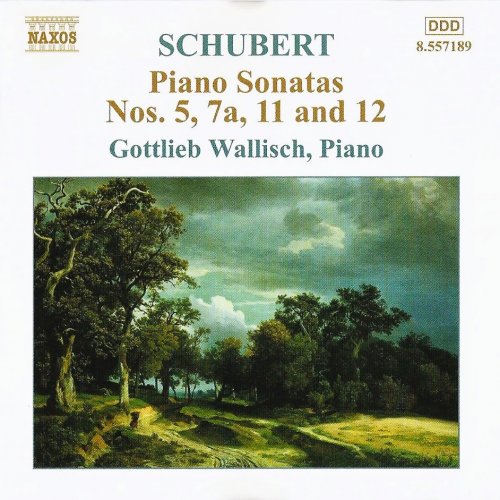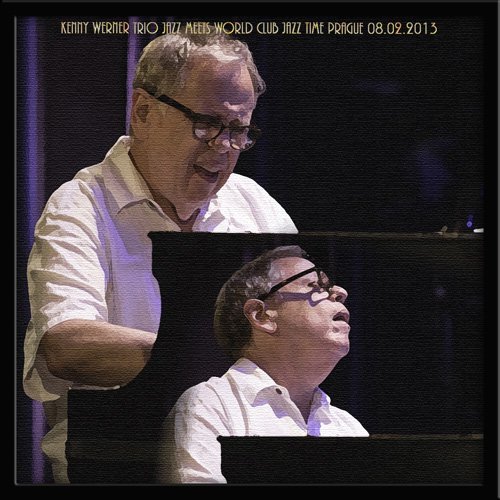Gottlieb Wallisch - Schubert: Piano Sonatas Nos. 5, 7a, 11 & 12 (2004)

Artist: Gottlieb Wallisch
Title: Schubert: Piano Sonatas Nos. 5, 7a, 11 & 12
Year Of Release: 2004
Label: Naxos
Genre: Classical
Quality: FLAC (image+.cue,log,scans)
Total Time: 01:09:02
Total Size: 235 mb
WebSite: Album Preview
Tracklist: Title: Schubert: Piano Sonatas Nos. 5, 7a, 11 & 12
Year Of Release: 2004
Label: Naxos
Genre: Classical
Quality: FLAC (image+.cue,log,scans)
Total Time: 01:09:02
Total Size: 235 mb
WebSite: Album Preview
01. Sonata # 5, Allegro Moderato [0:03:40.35]
02. Sonata # 5, Andante [0:03:30.17]
03. Sonata # 5, Allegro [0:04:28.38]
04. Sonata # 7a, Allegro Moderato [0:08:42.30]
05. Sonata # 7a, Andante molto [0:05:21.22]
06. Sonata # 7a, Allegretto [0:07:43.10]
07. Sonata # 11, Moderato [0:05:46.33]
08. Sonata # 11, Adagio (D.612) [0:03:54.45]
09. Sonata # 11 (allegretto) [0:05:22.30]
10. Sonata # 12, Allegro [0:06:35.55]
11. Sonata # 12, Scherzo: Allegretto [0:04:39.05]
12. Sonata # 12, Adagio (D.505) [0:03:33.40]
13. Sonata # 12, Allegro [0:05:49.17]
Performers:
Gottlieb Wallisch – piano
Among his most imaginative works, Schubert's fragmentary piano sonatas offer insights into his struggles with form and his experiments with tonality, preoccupations that led to great innovations in his final masterpieces. Composed between 1817 and 1823, the 12 unfinished sonatas reveal the most striking ideas and expressions, though many proved too difficult to develop satisfactorily; or, in other cases, the sonatas are incomplete because pages or whole movements are missing. The Sonata No. 5 in A flat major, D. 557, is the most complete and is included here because its unusual ending in E flat suggests an unwritten fourth movement. Written in 1817, the Sonata No. 7a in D flat major, D. 567, is a virtuoso piece Schubert wished to publish. However, the lost last page puts this substantial work among the fragments. The Sonata No. 11 in C major, D. 613/612, and the Sonata No. 12 in F minor, D. 625/505, are true fragments, with significant lacunae and without middle movements. Aside from the insertions of D. 612 and D. 505, Gottlieb Wallisch plays the sonatas as they appear in the manuscripts, without the completions added by others, and stops playing where Schubert halted. Wallisch's performances are sensitive, clean, and stylistically appropriate, and Naxos provides splendid sound throughout.








![Louis Matute - Dolce Vita (2026) [Hi-Res] Louis Matute - Dolce Vita (2026) [Hi-Res]](https://img.israbox.com/img/2026-01/10/7o1gz4rkolmyer0yu89vuy268.jpg)